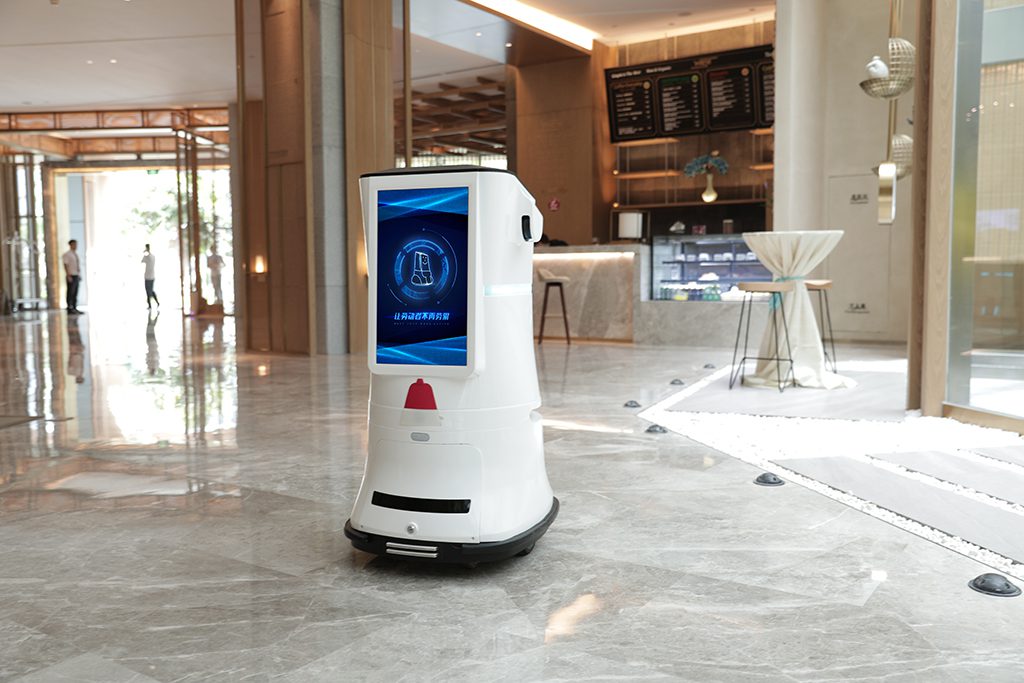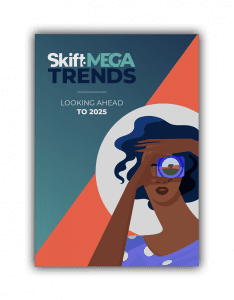Skift Take
The pace and extent of computerization varied in 2025. In countries that permitted it, some corporations automated their employees out of jobs without much hesitation. Workers needed to hone new skills as artificial intelligence threatened their livelihoods while others firms invested in retraining their staffs.
In January 2021 we released our annual travel industry trends forecast, Skift Megatrends
. Because of the havoc that the pandemic triggered, we wrote Skift Travel Megatrends 2025 as a vision of how travel industry dynamics could play out five years from now. You can read about each of the trends on Skift, or download a copy here.
The year 2025 hasn’t seen widespread adoption of Jetsons-like, humanoid robots. Yet many travel sector workers are trembling as they see various technologies pick up the pace at which they automate some work tasks.
The 2020 pandemic prompted many companies to computerize many processes to cope with reduced staffing. The crisis accelerated the digitization of customer interactions by about three years, according to McKinsey & Co.
Yet during the recovery, many companies often saw little need to add back human labor. Chinese hotel groups Huazhu and BTG Homeinns went so far as to invest in 2020 in ExcelLand, a Shenzhen-based manufacturer that makes the robots they use to deliver food by room service.
Formulaic or highly structured physical activities are seeing the most upheaval. After authorities approved the use of autonomous vehicles in controlled settings, self-driving mobility scooters in airport terminals reduced the need for workers to push physically impaired passengers in wheelchairs. Meanwhile, drones and robots slashed the security forces needed to patrol airport perimeters. As seen in the chart below, coming out of the pandemic hoteliers were implementing or considering installing a variety of contactless tech services.
Adoption of Contactless Technologies in Hotels

The “robots” you don’t see, such as artificial intelligence and machine learning, can be just as disruptive as the ones you do. Jobs involved in collecting and processing data likewise are taking a hit from automation. Many hotel groups that slashed their revenue management teams in 2020 opted to use software for setting rates and managing room inventory as the crisis ebbed. While not perfect, the software came out ahead more often than not when performing certain revenue management functions.
Some travel companies reacted to the rising level of automation by investing in better training and education for their workforces. The pandemic accelerated a trend of more education happening online. Some companies supported efforts by organizations such as Typsy and Hosco to help enhance the capabilities of workers using a mix of gamified and mobile-first video tutoring, and virtual and augmented reality to create simulations for practicing skills.
The multi-decade trend in automation has at least one upside for workers.
“Automation drives productivity increases that raise total income in the economy,” noted an MIT report in 2020. Some of that additional money will be spent on more frequent and distant travel, benefiting the sector, and the employees who serve it.
Download Your Copy of Skift Travel Megatrends 2025
Skift Megatrends 2025 is made possible by our parters: Abu Dhabi Convention & Exhibition Bureau, Accor, and American Express.
The Daily Newsletter
Our daily coverage of the global travel industry. Written by editors and analysts from across Skift’s brands.
Have a confidential tip for Skift? Get in touch
Tags: automation, robots, Skift Travel Megatrends 2025
Photo credit: Excelland’s third-generation robot for use in hotels. Excelland

